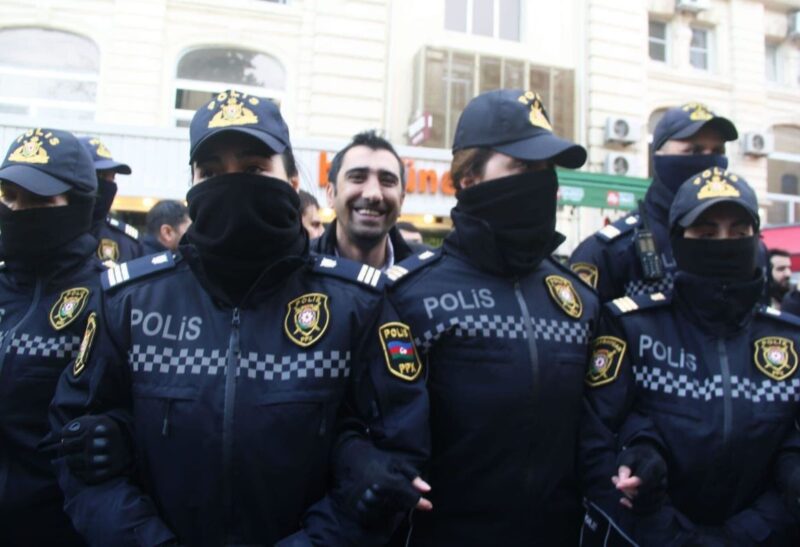Former police officer and human rights advocate Ilhamiz Guliyev was reportedly taken into custody on December 4 on alleged drug-related charges. This follows a series of events as detailed by his relatives and acquaintances.
Relatives disclosed that Guliyev had been under surveillance for over a week, with police allegedly monitoring his residence. Concerned about potential arrest and mistreatment, Guliyev visited the Drug Center to secure a certificate affirming his non-involvement with drugs.
Earlier in October, Guliyev had been subject to a 30-day administrative detention under charges of petty mischief and deliberate disobedience to police requests. His family contests these charges, claiming they stemmed from an interview he gave to “AbzasMedia,” discussing alleged police abuse of citizens using unregistered drugs.
Despite his anonymity in the interview, Guliyev was identified and subsequently arrested.
During his earlier detention, Guliyev’s phone was confiscated, and he was prohibited from leaving the country. His attempt to travel to Georgia in November was halted at the airport, revealing restrictions on his departure. Feeling monitored, he procured the previously mentioned certificate from the Republican Narcotics Center.
On December 4, Guliyev left his residence in the Yasamal region, after which his whereabouts became unknown to his family. Following complaints to the Ministry of Internal Affairs and the Ombudsman Office, Guliyev briefly contacted his relatives, indicating his presence at the 28th police station in Yasamal district. He alleged an attempt to drug him and conveyed his location.
His family rushed to the station, where, according to them, Guliyev was then transferred to Yasamal District Police Station by the Post Patrol Service. Allegations of torture and resulting injuries on his legs, back, and head were reported by his relatives.
Numerous activists in Azerbaijan are currently imprisoned on drug charges, which they assert are politically motivated penalties rather than legitimate accusations. Meanwhile, the Ministry of Internal Affairs maintains that these detentions are based on substantial evidence.



